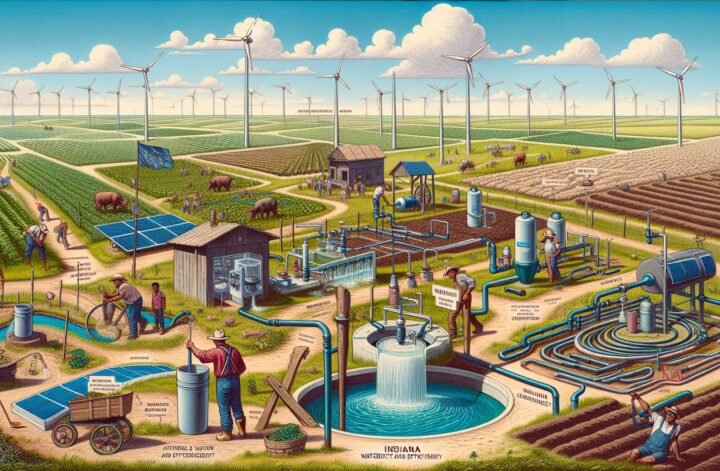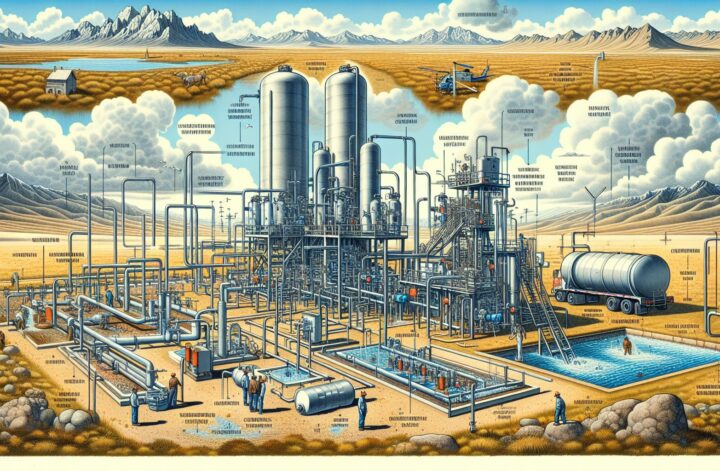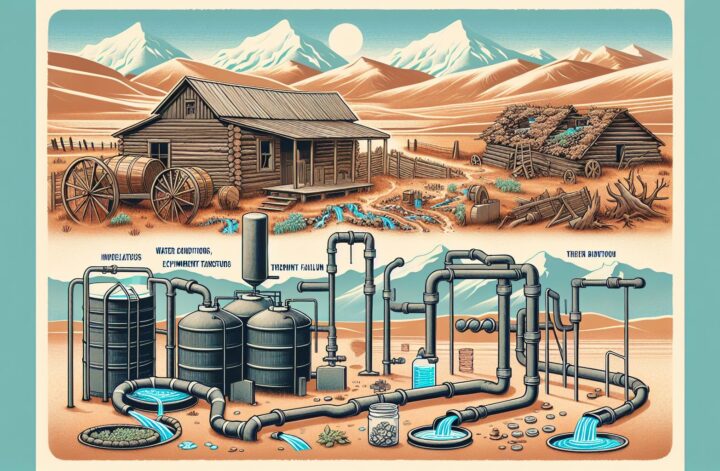
Maintaining sustainable and efficient rural water and wastewater systems is a key concern for many states, and Indiana is no exception. The Hoosier state has made significant strides in implementing effective wastewater and water infrastructure in its rural areas. It is crucial to understand that these systems are often more difficult to maintain and upgrade due to the relative isolation of some communities and the sparse population density.
Innovative Solutions
The Indiana Rural Water Association (IRWA) has been a key player in developing innovative solutions for rural areas. The IRWA, established in 1978, provides resources, training, and ongoing technical assistance to rural water and wastewater systems throughout the state. Activities include helping to identify funding sources, assisting in project planning, delivering operator training, and facilitating regulatory compliance.^[1^] These services are vital for maintaining the rural water systems that thousands of Indianans depend on.
Indiana’s rural water systems have also begun to transition towards renewable energy to power their operations. For instance, the town of Reynolds, in White County, has become “BioTown, USA”. The community’s wastewater treatment plant uses biogas generated from local agricultural waste, turning it into a sustainable energy source.^[2^]
Infrastructure Improvement and Modernization
The state of Indiana recognized that rural water systems often struggle financially and need help to invest in necessary infrastructure. Therefore, the State Revolving Fund (SRF) Loan Programs became the primary source of affordable financing for modernization and improvements to the state’s water and wastewater infrastructure.^[3^]
With these resources, rural water facilities have upgraded aging infrastructure, implemented modern water treatment methods, and become more resilient to adverse conditions like drought.
Collaboration with Federal Agencies
Indiana has also partnered with federal agencies in maintaining rural water systems, such as the United States Department of Agriculture (USDA). The USDA has Rural Development programs that provide loans and grants for water and waste disposal systems in rural communities. These federal resources are invaluable in enabling Indiana’s rural water systems to continue providing reliable and safe water.^[3^]
Conclusion
Implementing and maintaining rural water and wastewater systems is a complex task that requires innovative solutions, support from state and federal agencies, and constant adaptation. Indiana has made significant steps in this direction charting a sustainable and efficient path for its rural communities.
^1- Indiana Rural Water Association
^2- BioTown USA: Indiana Town Using Biogas from Wastewater and Other Local Sources to Run Town
^3- USDA Rural Development Water and Waste Disposal Loan and Grant Program




